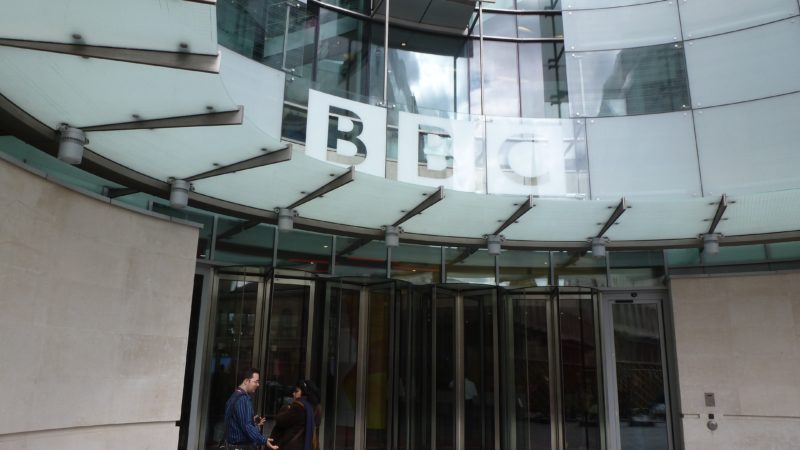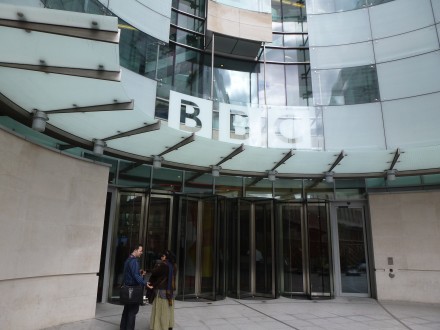

It’s high time that high pay was exposed in all sectors of the economy. It encourages greed and it incentivises people to work less. Let’s be honest, it’s chief executives who retire in their fifties and not those who work on the shop floor.
Labour’s manifesto was spot on in identifying the idea of a 20 to 1 ratio between the highest and lowest paid in the public sector and for government contractors.
Last month the BBC published a list of people with salaries of more than £150,000 and this stirred a questioning of how much is reasonable for talented individuals to earn. Chris Evans undoubtedly has a flair for broadcasting while some of the less famous on the list – like Shaun Keaveny from the BBC 6 Music breakfast show who earns in excess of £150,000 – offer an original and entertaining dawn chorus. But are they really worth it?
The fact that only one third of people on the BBC rich list are women illustrates the reality of gender inequality in modern Britain. The likes of Clare Balding and Claudia Winkleman will no doubt be pushing for increased pay. Winkleman, the co-host of Strictly Come Dancing, may feel it unfair she is paid £500,000 compared to Evans on £2m but is it right to have gender pay inflation for the class of those who are already millionaires?
Labour has a proud record on addressing gender pay inequality dating back to the 1970 Equal Pay Act. The priority for Labour is rightly focussing on the lowest paid. Concentration on addressing a real living wage will rightly make a real difference for the poorest paid people in our society, of whom a disproportionately high number are women.
If there was a similar rich list in all public services then we would see NHS chief executives, university vice-chancellors, civil servants and no doubt a lot of organisations that avoid the public glare publishing long lists of the super rich – and probably disproportionately male.
The average salary of vice-chancellors is an astonishing £277,834. The average NHS chief executive is paid £172,000. These people no doubt work hard but do they really need to be paid such vast salaries?
The tired argument for stratospheric salaries is that they reflect the reality of pay competition. That these mouth-watering sums are necessary to attract and maintain talent. This view needs to be seriously challenged in the public sector and that would spark a similar challenge in the private sector where high pay is even more shocking.
Take a look at the privatised railways. In the 1970s there was one British Railways company. Now we have a plethora of train operators as well as firms providing tracks and regulation – all with long lists of highly paid executives. The railways are a microcosm of how high pay multiplies in the private sector with little evidence of ab improved service. A vignette of railway company chief executive pay is that of Charles Horton, boss of Southern Rail who receives £495,000. Southern Rail is synonymous with poor service performance.
So what about a pay cap? In the case of the BBC this would free money to address low pay where more than 400 people earn less than £20,000. It would free money to be awarded for new writers, grants for women and minorities to enter broadcasting. It might lead to the departure of some of the high-earning talent. But is that a problem? This would present opportunities for new talent. If Evans left BBC there would be an X-Factor sized queue of amazing people eager to fill his shoes.
A pay cap for the BBC would be a wonderful way to challenge the myth that high pay is the way to generate creativity, innovation and income. A cap of £150,000 could guarantee gender equality. I suspect much of the talent would still want to remain working for the prestigious BBC.
As a country we should be bold on high pay. Our politicians should be profoundly uncomfortable with the super-rich not as individuals but systemically. Good luck to any individual who is a high earner but let’s be tough on a system where a cleaner works all hours but cannot afford a good quality home and is reliant on debt while that same system hands the super-rich unimaginable rewards.
Labour has an excellent record on pay. Whether the introduction of the minimum wage or the Equal Pay Act. These were radical ideas and also popular. Pay needs to continue to be at the heart of Labour campaigning and that needs to include extraordinary and unfair high pay.
Richard Bulmer is a Labour member in Sheffield Central.




More from LabourList
Government abandons plans to delay 30 local elections in England
‘The cost of living crisis is still Britain’s defining political challenge’
‘Nurses are finally getting the recognition they deserve’